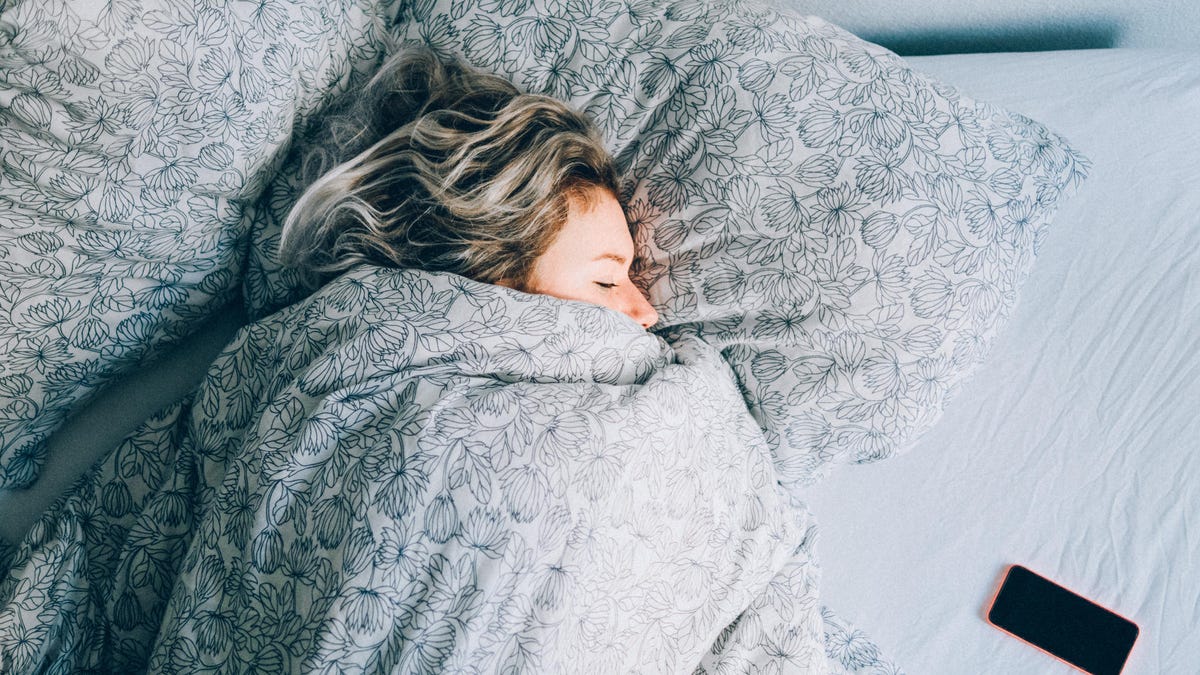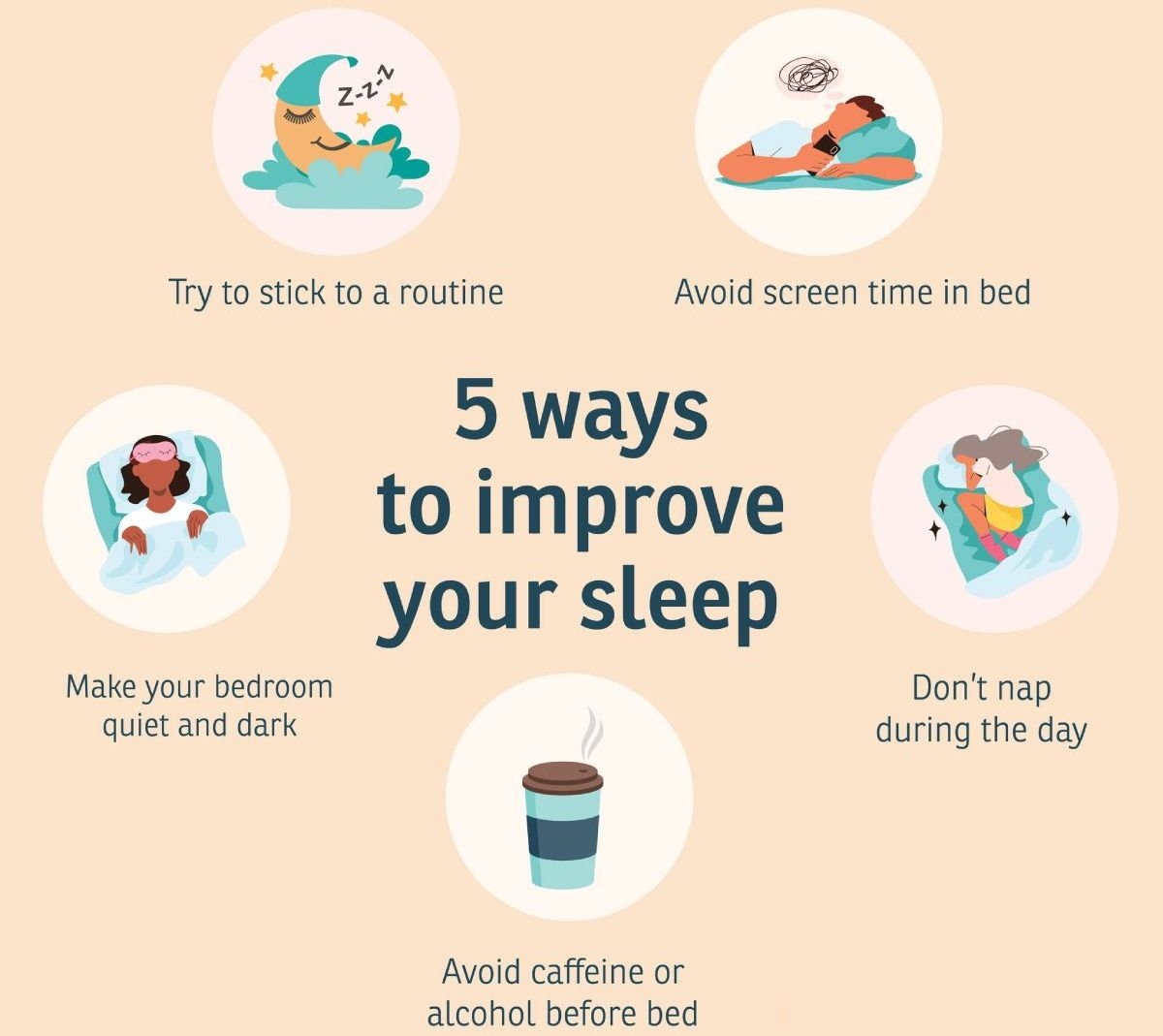
Adequate sleep is vital for your health, but can be hard to achieve when life is busy. Sleeping problems are common, with up to 4 in 10 Australian adults not getting enough good-quality sleep. Fortunately, there are many things you can do to improve your sleep.
What are the stages of sleep?
When you are asleep, your eyes are closed, most of your muscles are relaxed and your consciousness is practically suspended. While your body is mostly still, your brain is quite active.
Your body’s circadian rhythm (or, internal biological ‘clock’) control when you feel sleepy and when you’re typically awake. If this system is disrupted — such as due to shift work or jet lag — you can experience sleep problems.
Sleep has 2 main phases:
- rapid eye movement (REM) sleep
- non-rapid eye movement (non-REM) sleep
When you are in non-REM sleep, you go through 4 stages. During stage 1, you are transitioning between being awake and asleep, and wake easily. During stages 2, 3 and 4, your eye movements stop, your body temperature drops and you are deeply asleep.
In REM sleep, your eyes move rapidly, your blood pressure and heart rate go up, and your brain becomes very active. REM sleep is when most dreaming occurs and is thought to be important for learning and creating new memories.
REM sleep happens about every 90 minutes during the night. Adults usually spend about one-fifth of the night in REM sleep and the remaining four-fifths in non-REM sleep. Babies spend at least half of the time they’re asleep in REM sleep.
Why is sleep important?
Scientists don’t fully understand why humans need so much sleep, but it’s believed to help restore the body physically, as well as organise the brain. In short, you need sleep so your body and mind can function properly.
Sleep is also thought to help keep the immune system strong and the heart and blood vessels healthy. It allows for growth and healing, and helps control appetite and weight. Sleep promotes attention, memory and learning.
How much sleep do I need?
Most adults need about 8 hours of sleep per night. Children and teenagers need more sleep than adults, while older people tend to sleep more lightly and for shorter time spans than when they were younger — despite needing the same amount of sleep as they did as young adults.
What can happen if you don’t get enough sleep?
Not getting enough sleep can seriously affect a person’s health. As well as impacting concentration and mood, lack of sleep has been linked to a range of conditions such as heart disease, high blood pressure, diabetes and even premature death.
In the short term, people who don’t get adequate sleep are more likely than others to have road accidents. It can also lead to problems with productivity and safety in the workplace.
Common sleep disorders include insomnia, snoring and sleep apnoea (a breathing abnormality). Sleep problems can affect your health and safety, so if you’re feeling sleep deprived, see your doctor for advice.
What is good ‘sleep hygiene’?
Good sleep hygiene describes habits that will help you sleep well. While you can’t make yourself sleep, there are things you can do to increase your chances of getting a good night’s rest.
Strategies include making simple changes to your sleeping environment and adjusting the timing of certain activities or what you eat and drink.
In most cases, sleeping pills are not the answer — they aren’t suitable for regular use as they can be addictive and don’t address the cause of sleeping problems.
How can I improve my sleep?
Try these tips to improve the quality of your sleep and to ensure you are properly rested the following day.
Stick to regular sleep patterns
Help your body establish a healthy sleep routine by going to bed and waking up at about the same time each day.
Spend the right amount of time in bed
While 8 hours of sleep is recommended for adults, some people require more sleep and some require less. Limit your time in bed to no more than 8.5 hours. If it takes you a long time to fall asleep, try going to bed later.
Use your bed for sleep, not screens
Computers, phones and TV can disrupt your sleep. Your mind needs to associate being in bed with sleeping rather than watching TV or using your computer. Don’t stay in bed if you’re wide awake.
Relax before bed
Establish a ‘buffer zone’ before bedtime where you’re not trying to solve any problems or are thinking about tomorrow. Find a relaxation technique that works for you instead. Avoid using your computer or phone during the ‘bedtime buffer zone’.
Be comfortable in your bedroom
Your room should be the right temperature, as well as quiet and dark. Make sure you have comfortable bedding and try to keep known stressors out of your bedroom.
Avoid alcohol, caffeine and cigarettes
While alcohol might make you sleepy initially, it can disrupt your sleep cycle, leading to poorer quality sleep. Caffeine and cigarettes are stimulants that can also stop you from sleeping well.
Don’t nap
Unfortunately, sleeping during the day can make it more difficult to fall asleep at night. If a nap is really necessary, limit the duration to half an hour and make sure you’re awake for at least 4 hours before going back to bed.
Don’t watch the clock
If you can’t sleep, checking the time can heighten your anxiety about not sleeping. If possible, take the clock out of your room.
Avoid sleeping pills
Sleeping pills, which can be addictive, don’t address the cause of your insomnia and won’t help you in the long term. Sleeping pills should only be prescribed by a trusted doctor who fully understands the reasons why you might be struggling to get good quality sleep.
Ask for help if you need it
If you regularly wake up feeling unrefreshed, are always restless in bed, have trouble getting to sleep or find that being tired is affecting your mood, see your doctor.

How do I sleep well if I’m a shift worker?
For most people, shift work means working against their natural circadian rhythm.
If you do shift work, you may need to be active and alert at night — the time when your body is meant to be asleep. You may need to sleep in the daytime, when your body is telling you to wake up. Because of this, it’s critical for shift workers to establish healthy sleep habits.
Here are some important things to remember if you are a shift worker:
- Make time for adequate sleep.
- Don’t fill up your day with social activities then go to work at night.
- Ensure your family or people you live with know when you shouldn’t be disturbed, where possible.
- If possible, sleep before work so you can establish the routine of getting up and going to work.
- Try to go to bed at the same time every day, where possible.
- Make your bedroom cool and quiet.
- Remove phones and lights, use ear plugs, a fan or a ‘white noise’ machine to drown out noise.
- Avoid caffeine, sleeping pills, alcohol or nicotine before going to bed.

